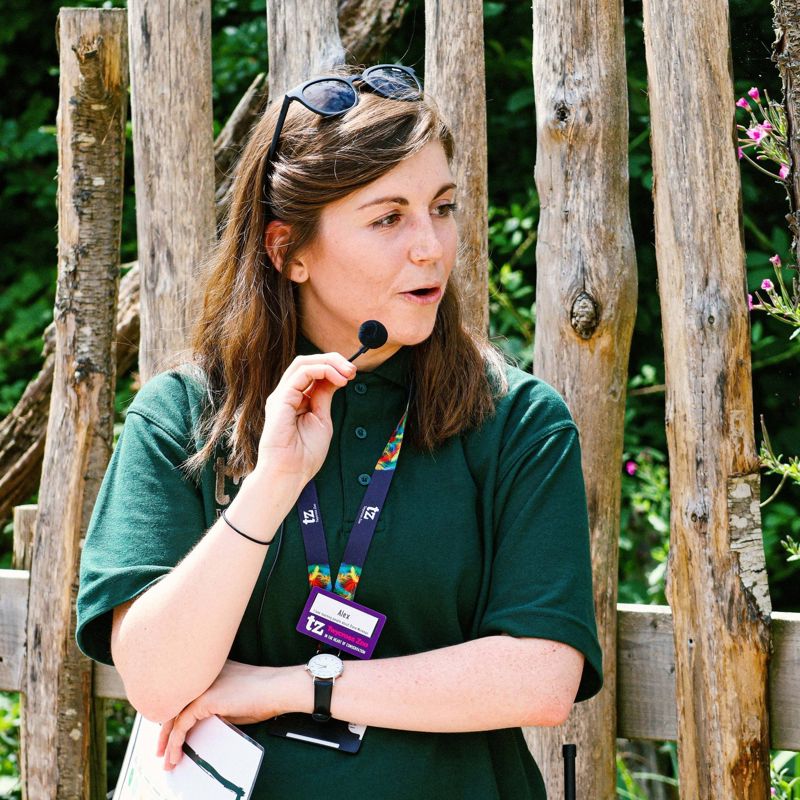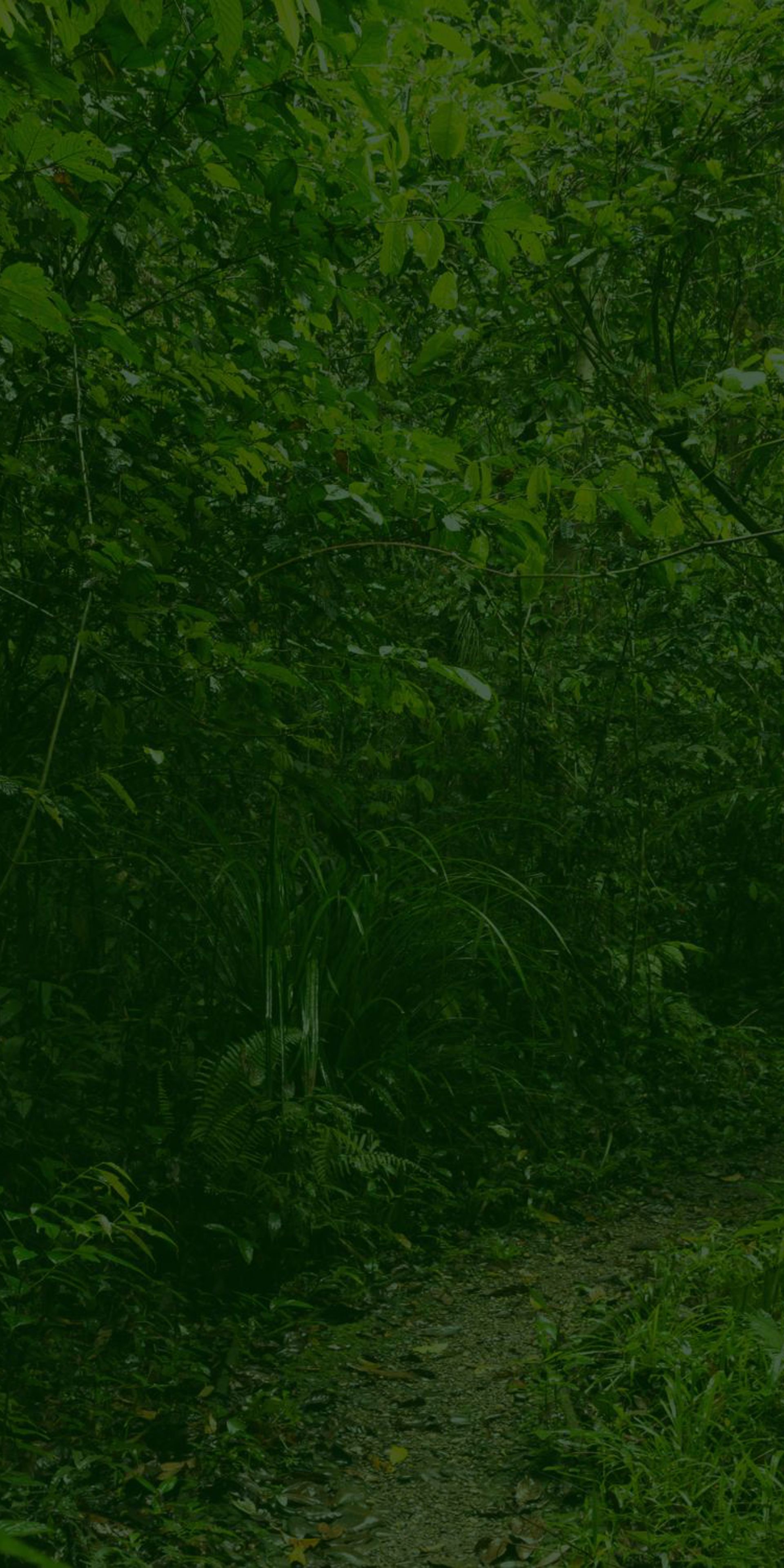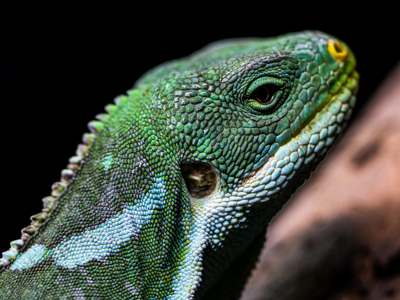
Fiji-banded iguana
Key Facts:
Scientific name: Brachylophus bulabula
Range: Central Fiji
Habitat: Forest, shrubland, rocky areas
Diet: Omnivores (mainly eating vegetation to maintain hydration and consuming the occasional insect)
Average size: Adults can reach up to 60cm long
Life span: An average of 12 years
IUCN Red List: Endangered
Fiji banded iguanas are a species that was described in 2008, separating them from the similar-looking Lau banded iguanas. As one of very few iguanas existing outside of Central and South America, this species is held in high regard as a national treasure within Fiji. Males boast distinctive pale blue or green bands (hence their name) spanning the width of their lime green body and tail, whereas females tend to have a uniform green body with some white or pale blue patches
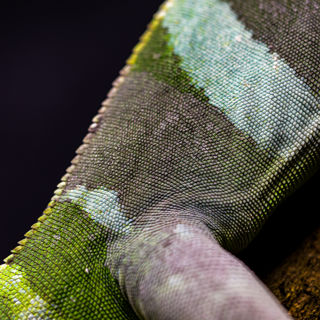
-
Fiji banded iguanas were previously mistaken to be the same species as the Lau banded iguana, but in 2008 they were declared a different species with unique identifying features in comparison to the Lau banded iguana (for example, they possess a much more round and yellow nostril and a red iris). This makes proper management of the Fiji banded iguana critical for the continuation of their species and, here at Twycross Zoo, the Fiji banded iguanas are part of a population management programme that ensures just that.
-
Because of their dentistry, this largely herbivorous (plant-eating) species tends to tear and swallow pieces of food instead of chewing them. Whole, undamaged seeds then pass through their bodies and are disposed of throughout the forest, helping new trees to grow from the fertile seed and scat (animal poo) mixture that falls to the forest floor.
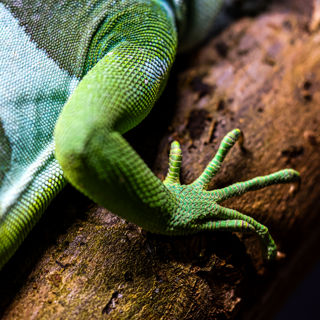
During courtship, males bob their head and flick their tongue to attract a female, who will typically lay around five eggs in a burrowed space in the ground.
Despite this species rarely emerging from the highest levels of the tree canopy and generally living in trees that stand at least 20ft tall, Fiji banded iguanas are strong swimmers like other species of iguana
Fiji banded iguanas normally reach a length of 19cm, which is about the length of a pencil. In combination with their green colouration, this species is very difficult to observe within their forested surroundings, highlighting the importance of conservation efforts that focus on the monitoring and protection of this Endangered species
Fiji banded iguanas are 'Endangered' according to the IUCN Red List, meaning they are at substantial risk of extinction. This is due to:
Habitat loss: Fiji banded iguana habitats are damaged as a result of fires that are burned to move and manage goat herds. This makes the goats easier to round up, but reduces available habitat as well as food sources for the largely herbivorous Fiji banded iguana.
Invasive species: When this species descend from their forested habitat to lay their eggs, they’re susceptible to predation by invasive (non-native) species like mongoose, black rats and feral cats who threaten the survival of Fiji banded iguana.
Illegal pet trade: Fiji banded iguanas are sometimes sold as pets on the global market. Removing these individuals from their Fijian habitats reduces the number of in-situ (wild) individuals, making it more difficult for them to find mates and produce healthy, stable populations of their species
-
![362277039 664600909026309 8369226469419348221 N]()
What we're doing...
Fiji banded iguanas are part of an EEP, for populations management. This allows for healthy breeding decisions to be made to ensure the overall health of the ex-situ populations. With this species previously mistaken to be the same as the Lau banded iguana, EEP's help zoos to make informed breeding decisions to ensure the conservation of both species. Also, our designated Conservation Education team are on hand to discuss this species with our guests, raising awareness for their threats and conservation
-
![IMG 9825 Copy (1)]()
How you can help?
When buying animals to care for, ensure you’re not supporting the purchase of illegally sourced animals by thoroughly researching the species before you buy them. Animals should only be acquired from a reputable seller who can demonstrate the correct documentation to their buyers. This will help to conserve Fiji banded iguanas and maintain stable in-situ (wild) population numbers.

